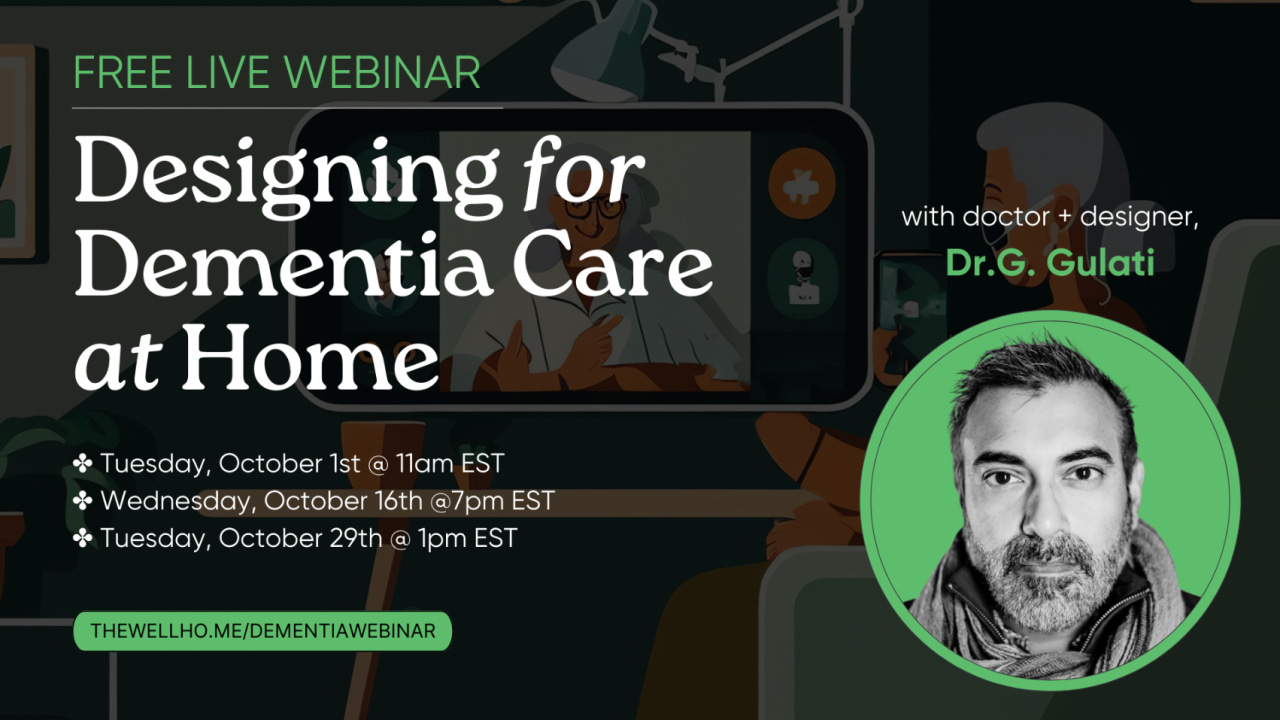Today I had the pleasure of meeting with Gautum Gulati, M.D. He and I share the eperience of George Washington University School of Medicine. Dr G, please tell us your story.
The Well Home and Well Played. I'm Dr. G, an award-winning health artist who designs luxury interiors that promote health, longevity, and well-being by applying the science of healthy design to our homes and beyond. My journey is fueled by an insatiable curiosity and spans a diverse array of industries, helping leaders and companies innovate in a world brimming with uncertainty.
Blending my deep-rooted passion for health, innovation, and storytelling, I strive to make a positive impact. I wear many hats—speaker, writer, investor, advisor, teacher, producer, and builder of remarkable things, especially in the realm of health.
As the Founder of The Well Home at: https://www.thewellho.me I bring over 20 years of hands-on experience as an award-winning innovation executive, contributing to globally recognized brands and products within and outside healthcare. Leaders seeking to transform their organizations and escape mediocrity often turn to me for guidance.
As a serial entrepreneur, I advise several companies and teach the art of innovation at prestigious institutions like Johns Hopkins, Duke, and Singularity Universities. I've delivered hundreds of keynotes for iconic brands such as Marriott, American Express, Roche, Merck, LG, TEDx, and more, aiming to inspire leaders to think differently.
I hold an MD and MPH from George Washington University and an MBA from Johns Hopkins University. Additionally, I'm a certified Interior Designer from NYIAD, specializing in wellness.
One of my proudest achievements is being dubbed "The Rick Rubin of audio storytelling" for my work with SUPERHUMANS. Dr. Gulati is also known for his storytelling, as explained here on his podcast:
Dr. G graduated from the George Washington University School of Medicine and also earned an M.P.H, then attended design school at
His interests are in Dementia care and aspects of everyday living for patients and their families.
Public sector residential aged care services play an important role in supporting access to services for people who:
have complex support needs
are experiencing socioeconomic disadvantage
live where there are no other alternatives.
These services aim to promote residents’ independence, choice, and dignity to support their health, well-being, and quality of life.
People with dementia account for 52 percent of residents in all residential aged care facilities. This number is even higher in public sector residential aged care services.
The increasing population of individuals diagnosed with dementia presents significant challenges and needs that require attention from healthcare providers, policymakers, and society at large.
Conclusions:
Meeting the needs of the increasing dementia population requires a multifaceted approach that incorporates healthcare, community support, research, and policy initiatives. By addressing these areas, we can improve the quality of life for individuals with dementia and their caregivers.
The increasing population of individuals diagnosed with dementia presents significant challenges and needs that require attention from healthcare providers, policymakers, and society at large.
-Growing Prevalence
Dementia affects millions worldwide, and its prevalence is expected to rise due to aging populations. As life expectancy increases, so does the number of older adults at risk for developing dementia-related conditions.
### Key Needs
1. **Healthcare Services**:
- **Access to Care**: Early diagnosis and ongoing care are crucial. Many individuals face barriers to accessing specialized healthcare services.
- **Integrated Care Models**: Coordinated care that addresses both medical and social needs can improve the quality of life for those affected.
2. **Support for Caregivers**:
- **Respite Care**: Caregivers often experience significant stress. Providing them with access to respite care can alleviate some of this burden.
- **Training and Resources**: Equipping caregivers with knowledge about dementia can enhance their ability to provide care.
3. **Community Support**:
- **Social Engagement**: Programs that promote social interaction can help combat isolation and improve mental well-being for both individuals with dementia and their caregivers.
- **Safe Environments**: Communities need to be designed to be dementia-friendly, offering safe spaces and supportive services.
4. **Research and Innovation**:
- **Funding for Research**: Increased investment in research can lead to better understanding, prevention, and treatment options for dementia.
- **Technological Solutions**: Innovations such as apps and devices can assist in care management and improve communication.
5. **Policy and Advocacy**:
- **Public Awareness Campaigns**: Educating the public about dementia can reduce stigma and promote understanding.
- **Legislative Support**: Policies that support funding for dementia care and research are essential for addressing the needs of this growing population.
Whether it is aging in place, assisted living or memory care these requirements will increase the cost of healthcare.
The increase in dementia and an aging population will create tremendous stresses in our current health system in cost and decreasing accessibility.
There is hope on the horizon with telehealth, remote monitoring, artificial intelligence, and robotics.
Thanks to Dr. G for his vision and advocacy for aging patients.
I am your host Gary M. Levin






